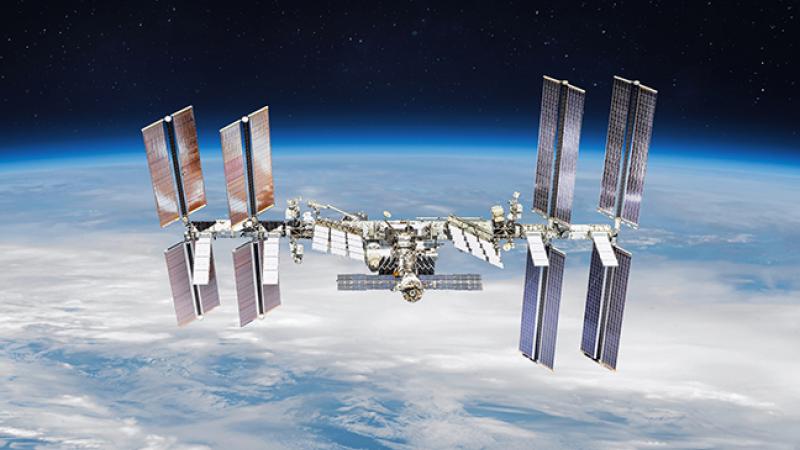November 4, 2024

Recently, RPI’s Richard Bonocora, Ph.D., senior lecturer in biological sciences, joined 29 other international participants for the Spaceflight Technology, Applications and Research (STAR) program. STAR is “a virtual NASA training for space biosciences.” The program, which will run until February, will give Bonocora an overview of the current topics in space biology, how to conduct an experiment in space and all of the unique considerations, and provide unique collaborative opportunities. He plans to share his new knowledge across campus with fellow faculty members as well as students. “I’m excited to gain knowledge through the STAR program that can help my students in many fields pursue these exciting opportunities,” said Bonocora.
“I first became interested when a student, Joe Adam (Ph.D. ’21), asked me if I’d like to send bacteria to space. Until then, I hadn’t given it much consideration! Of course, I said yes!”
Bonocora’s research focuses on how genetic rearrangements affect expression in E. coli bacteria. Also called jumping genes or transposable elements, they refer to DNA sequences that move from one location on the genome to another. Bonocora is also interested in how genetic and environmental factors play a role. What could be a more fascinating environment than space?
“How bacteria evolve in the unique environment of space, with elevated radiation exposure and reduced gravity, is a major concern for astronaut health and mission success as space flights get longer and more distant,” said Bonocora.
After Kevin Damour ’87, ME ’88, Ph.D. ’92, the uncle of another of Bonocora’s students, Mikayla Sears, B.S. ’21, made a generous donation for the acquisition of two NASA-designed microgravity simulators for the Department of Biological Sciences at RPI, Bonocora pursued opportunities to use the new tools for both research and teaching. He was hooked when he saw the E. coli’s production of flagella affected by the simulator’s environment. In his microbiology class, his students now grow bacteria in the simulator and then remove them to see how they respond to stress. After completing the STAR program, Bonocora will be better equipped to not only pursue getting his own experiments in space, but in advising his students about the potential opportunities.
Bonocora has recently initiated a collaboration with R. Helen Zha, Ph.D, and Mattheos Koffas, Ph.D., in the Department of Chemical and Biological Engineering, along with Christopher Bystroff, Ph.D., in the Department of Biological Sciences, to better understand the effect of simulated microgravity on protein production. “Resupplying distant space missions will be difficult. Understanding the challenges to synthesizing protein-derived therapeutics and materials in flight and on lunar and Martian missions will become essential,” said Bonocora.
Bonocora hopes the knowledge from the STAR course will help him and others in the RPI community to join the ranks of the multiple researchers at RPI with space experiments currently underway.
On September 30, RPI hosted the Space Science and Technology Day to celebrate the many contributions the Institute has made to the history of space exploration and to provide an overview of current research. Dr. Bonocora’s students presented two posters at this event.